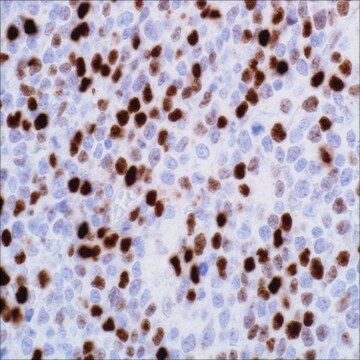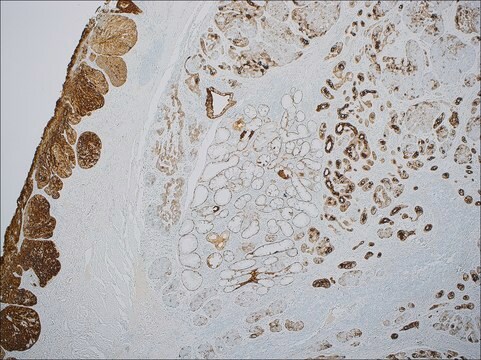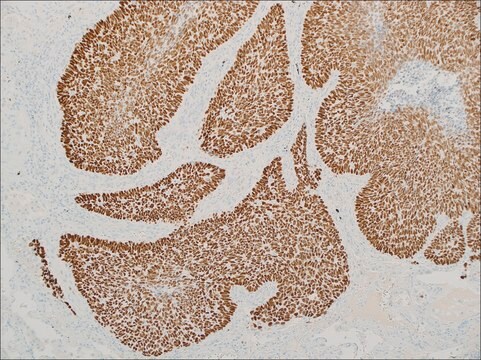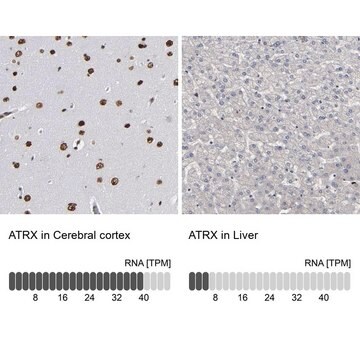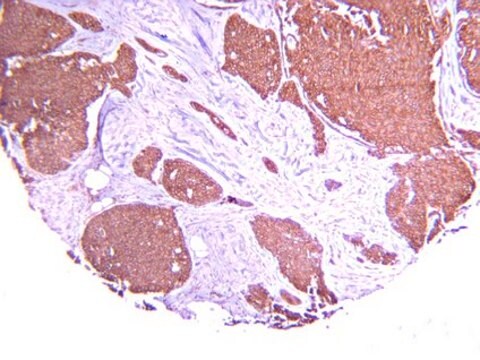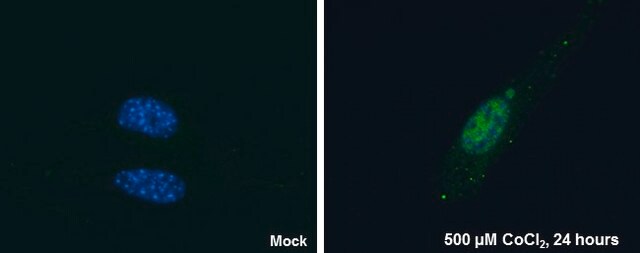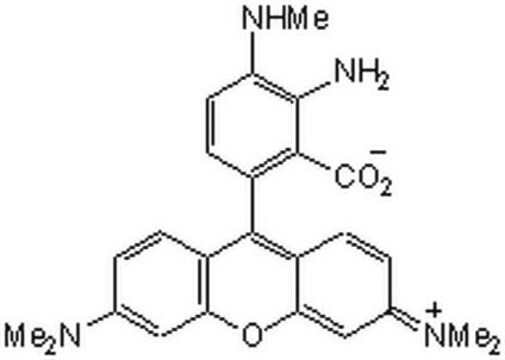324M-1
PSA (ER-PR8) Mouse Monoclonal Antibody
About This Item
Polecane produkty
pochodzenie biologiczne
mouse
Poziom jakości
100
500
białko sprzężone
unconjugated
forma przeciwciała
culture supernatant
rodzaj przeciwciała
primary antibodies
klon
ER-PR8, monoclonal
opis
For In Vitro Diagnostic Use in Select Regions (See Chart)
Formularz
buffered aqueous solution
reaktywność gatunkowa
human
opakowanie
vial of 0.1 mL concentrate (324M-14)
vial of 0.5 mL concentrate (324M-15)
bottle of 1.0 mL predilute (324M-17)
vial of 1.0 mL concentrate (324M-16)
bottle of 7.0 mL predilute (324M-18)
producent / nazwa handlowa
Cell Marque®
metody
immunohistochemistry (formalin-fixed, paraffin-embedded sections): 1:50-1:200
izotyp
IgG1κ
kontrola
prostate
Warunki transportu
wet ice
temp. przechowywania
2-8°C
wizualizacja
cytoplasmic
informacje o genach
human ... KLK3(354)
Powiązane kategorie
Opis ogólny
Jakość
 IVD |  IVD |  RUO |  RUO |
Powiązanie
Postać fizyczna
Uwaga dotycząca przygotowania
Inne uwagi
Informacje prawne
Nie możesz znaleźć właściwego produktu?
Wypróbuj nasz Narzędzie selektora produktów.
Wybierz jedną z najnowszych wersji:
Certyfikaty analizy (CoA)
Nie widzisz odpowiedniej wersji?
Jeśli potrzebujesz konkretnej wersji, możesz wyszukać konkretny certyfikat według numeru partii lub serii.
Masz już ten produkt?
Dokumenty związane z niedawno zakupionymi produktami zostały zamieszczone w Bibliotece dokumentów.
Nasz zespół naukowców ma doświadczenie we wszystkich obszarach badań, w tym w naukach przyrodniczych, materiałoznawstwie, syntezie chemicznej, chromatografii, analityce i wielu innych dziedzinach.
Skontaktuj się z zespołem ds. pomocy technicznej